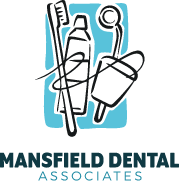Bruxism is the term used when patients habitually clench their jaw and grind their teeth. Because this often happens during sleep, it can occur even if you don’t realize it is happening. Bruxism can cause headaches, tooth sensitivity, and problems with your jaw. Bruxism can even lead to temporomandibular disorders (TMD), which can produce a variety of painful symptoms and limit your jaw’s movement. It’s important to know your risks for bruxism and TMD, and to communicate any concerns with your dentist.
Causes and Concerns of Bruxism
Bruxism can be a byproduct of stress and anxiety, but it can also happen if you have misaligned teeth, or an abnormal bite. Because bruxism is a constant assault on your teeth, the longer you have it, the more damage your dental health can suffer. Bruxism can lead to:
- Headaches
- Tooth Sensitivity
- Cosmetic Tooth Damage
- Trouble Sleeping
- TMD
If you think you have an issue with bruxism, or if you’re dealing with any of the issues above, make sure you talk to your dentist. The sooner you address these problems, the better off you are in avoiding long-term issues, like TMD.
TMD
TMD is a painful condition that occurs when you develop problems with the temporomandibular joint (TMJ), which attaches your jaw to your skull. It can lead to headaches, dizziness, and neck pain, and can affect your ability to properly move your jaw. TMD is often caused by bruxism, but other issues, like a heavy blow to your head or neck, or arthritis of the TMJ, can lead to TMD as well. Through the use of digital radiography, your dentist can look for evidence of bruxism and TMD, and make an informed decision about the best possible treatment.





Recent Comments